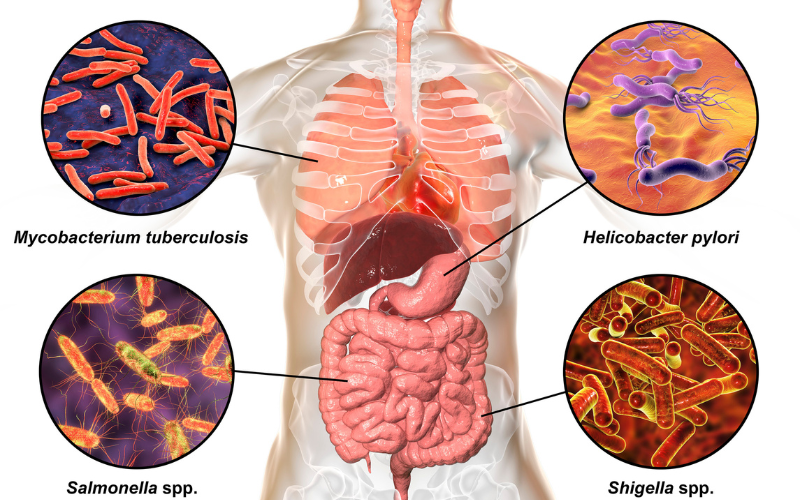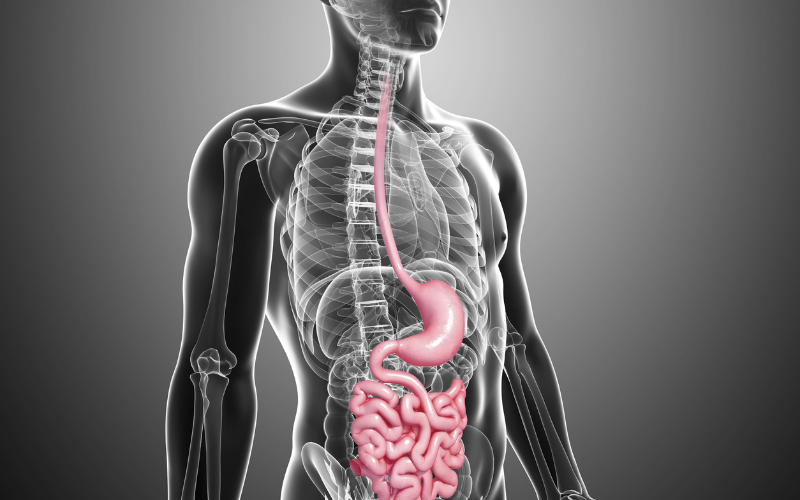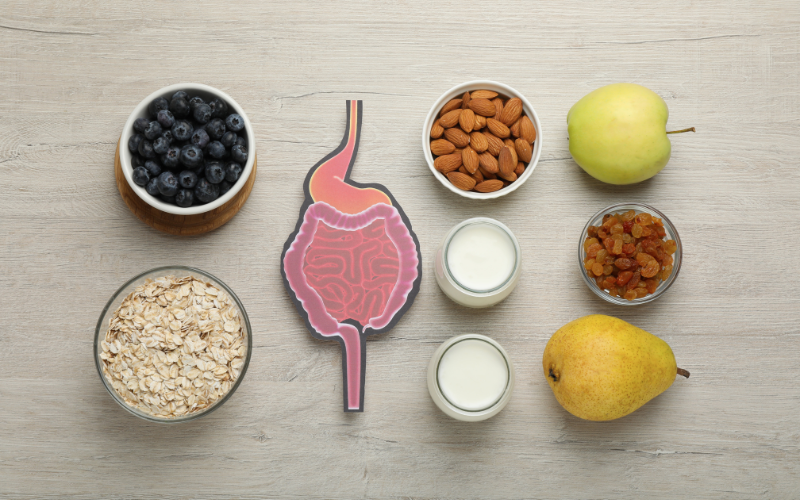
Why Your Digestive System Matters: Tips For Maintaining a Healthy Gut
- November 16, 2023
- Scientific Insights, Nutritional Psychology
- 0 Comments
In the whirlwind of our busy lives, we often overlook a fundamental aspect of our well-being – our digestive system.
Beyond its primary function of breaking down food for nutrient absorption, the digestive system plays a big part in how we feel overall.
But first, let’s explore what exactly the digestive system is exactly?
Table of Contents
The Digestive System Overall
Having a healthy digestive system means good health. But having a good digestive system needs a lot of factors.
Several factors can influence the functionality of the digestive system, impacting its efficiency and overall health. Here are key factors that play a role:
- Dietary Choices
- Hydration
- Probiotics and Gut Microbiota
- Physical Activity
- Stress Levels
- Sleep Patterns
- Medications
- Chronic Illnesses
- Age
- Environmental Factors

Think of your digestive system as your body’s food processing plant. It’s the incredible team of organs and processes working together to transform what you eat into the energy and nutrients your body needs to thrive.
From the first bite to the final farewell, this system ensures you get the good stuff from your meals.
For example, As food travels through your digestive tract, various organs such as the stomach and small intestine release digestive enzymes and acids to extract vital nutrients.
The small intestine, resembling a nutrient-absorbing maestro, absorbs these nutrients into the bloodstream, allowing your body to harness their energy and nourishment.
Meanwhile, the large intestine, akin to a waste management facility, takes care of processing the leftovers, extracting water, and forming the final product: waste.
You’ve learned about what the digestive system is.
Now, it’s time to move on to the next part to know how the digestive system and mood works.
Connection Between The Digestive System and Mood
Your digestive system is a powerhouse that not only impacts your physical health but also wields a considerable influence on your mood. The intricate process of food processing is key to understanding this dual effect.
When you consume nutritious, wholesome foods, the digestive system efficiently breaks them down, extracting essential vitamins, minerals, and other nutrients.
These nutrients are then absorbed into the bloodstream, providing your body with the building blocks for optimal health.
For instance, omega-3 fatty acids found in fish can contribute to brain health, positively influencing mood and cognitive function.
And, when you indulge in a diet rich in processed or unhealthy foods, the digestive system faces a different challenge. The excessive intake of sugars, fats, and additives can lead to inflammation in the gut.

This inflammatory response has been linked to conditions like irritable bowel syndrome (IBS) and other gastrointestinal disorders.
Research suggests that the composition of your gut microbiota, the community of microorganisms residing in your digestive tract, plays a pivotal role in both digestive and mental health.
A balanced and diverse microbiome supports efficient digestion and nutrient absorption, while an imbalance has been associated with mood disorders, including anxiety and depression.
Another example, a diet high in probiotic-rich foods, like yogurt and fermented vegetables, promotes the growth of beneficial bacteria in the gut.
These friendly microorganisms not only aid digestion but also contribute to the production of neurotransmitters such as serotonin.
Serotonin, often referred to as the “feel-good” neurotransmitter, has a direct impact on mood regulation.
So, the choices you make in terms of your diet significantly influence the efficiency of your digestive system and, consequently, your overall health and mood.
Opting for a nutrient-dense and well-balanced diet supports a healthy digestive process, while poor dietary choices can lead to disruptions in both physical and mental well-being.
Read more: How nutrition impacts our mental well being
7 Great Tips For Maintaining a Healthy Digestive System

You know how crucial your digestive system is, but ensuring its health goes beyond simply knowing its importance.
Maintaining a healthy digestive system is vital for overall well-being, impacting everything from nutrient absorption to mood regulation.
In this guide, Mentalmapguide‘ll delve into 7 practical tips that can empower you to nurture and support your digestive health.
Let’s explore simple yet effective ways to keep your digestive system functioning at its best.
1. Balanced Diet
A balanced diet encompasses a variety of foods from different food groups, providing essential nutrients such as carbohydrates, proteins, fats, vitamins, and minerals. This diversity ensures that your body receives the necessary building blocks for energy, growth, and repair.
- Fruits and Vegetables
- Whole Grains
- Lean Proteins
- Dairy or Dairy Alternatives
- Healthy Fats
Here’s a closer look at what constitutes a balanced diet and how you can incorporate it into your daily routine.
| Time of Day | Food Group | Examples |
| Breakfast | Whole Grains, Fruits | Oatmeal with berries, whole-grain toast |
| Mid-Morning | Protein | Greek yogurt or a handful of nuts |
| Lunch | Vegetables, Lean Protein, Whole Grains | Grilled chicken, quinoa, and salad |
| Afternoon Snack | Fruits, Healthy Fats | Apple slices with almond butter |
| Dinner | Vegetables, Lean Protein, Healthy Fats | Baked salmon, sweet potatoes, and steamed broccoli |
| Evening Snack | Dairy or Dairy Alternative | Cottage cheese or a yogurt parfait |
Note: These dietary suggestions are general guidelines. For individuals with specific needs like those convalescing, athletes, or on a weight loss journey, personalized plans are crucial. Consult with healthcare professionals or nutrition experts to tailor your diet for optimal well-being based on your unique requirements and goals.
Read more: Superfoods for a Super Mind Nutritional Keys to Well-being
2. Adequate Hydration
We all know water is crucial, right? But, It’s not just about staying hydrated; it’s like giving your digestive system a refreshing boost.
It helps in breaking down food, absorbing nutrients, and ensuring everything moves through your system smoothly.
So, How to Stay Hydrated?
- Sip Throughout the Day: Don’t wait until you’re thirsty. Keep a water bottle handy and take sips regularly.
- Infuse with Flavor: If plain water isn’t your jam, add some excitement. Infuse it with slices of fruits or herbs for a tasty twist.
3. Probiotics for Gut Health
Probiotics are live microorganisms that provide health benefits when consumed in adequate amounts. They are often referred to as “good” or “friendly” bacteria. These microorganisms help maintain a healthy balance in the gut microbiome, which is essential for proper digestion and overall well-being.
You can support your gut health by incorporating probiotic-rich foods into your diet. Yogurt, kefir, sauerkraut, kimchi, and kombucha are delicious options that introduce beneficial bacteria into your digestive system, helping to maintain a healthy balance in your gut microbiome.
4. Mindful Eating Practices
When you eat mindfully, you give yourself the chance to fully enjoy and appreciate each bite. Take your time, chew your food thoroughly—it’s not just good table manners, but it also aids in digestion. Pay attention to your body’s signals of hunger and fullness. By being mindful, you can avoid overeating and foster a healthier relationship with food.
5. Limit Processed Foods
You can take a significant step towards digestive well-being by limiting your intake of processed foods. Opt for whole, unprocessed foods like fresh fruits, vegetables, whole grains, and lean proteins. These choices provide essential nutrients and fiber, supporting optimal digestive function.
6. Regular Exercise:
Regular exercise is like a superhero for your body, especially your digestion. Imagine your digestive system as a team of hardworking workers in a factory. When you exercise, it’s like giving them a power boost.
Here’s why:
- Muscle Workout: Exercise is like a gym for the muscles in your stomach and intestines. It makes them strong and efficient. Imagine it as a fitness routine for your digestive muscles.
- Smooth Traffic Flow: Think of food as traffic. Exercise helps keep this traffic moving smoothly through your digestive highway. It prevents jams, like constipation, and keeps things flowing as they should.
- Happy Chemicals: When you exercise, your body releases happy chemicals called endorphins. These not only make you feel good but also send positive vibes to your digestive system. It’s like giving your digestive team a morale boost.
7. Manage Stress Levels
Your stress levels can impact your digestive health. Take time for yourself to manage stress through activities like meditation, deep breathing, yoga, or indulging in hobbies. By prioritizing relaxation, you contribute to a balanced lifestyle that supports a harmonious digestive system.
Let’s Try a combination of these strategies to see what works best for you and make them a part of your daily routine.
| Tip | Why it Helps |
| Deep Breathing Exercises | Calms your mind and triggers a relaxation response. |
| Daily Mindfulness or Meditation | Teaches your brain to focus on the present, easing worries. |
| Engage in a Hobby | Provides an enjoyable distraction, redirecting your mind from stress. |
| Establish a Relaxing Routine | Creates a sense of predictability, reducing anxiety. |
| Connect with Loved Ones | Social support helps share burdens and provides comfort. |
Besides, Having a healthy lifestyle and positive thinking is a good way to manage stress levels. And You can learn more about how positive thinking impacts your physical health here.
Conclusion
So, now you know that what you munch on isn’t just about satisfying your tummy but has a say in your mood too! How cool is that? Let’s keep it real—healthy gut vibes lead to happy mood vibes. It’s like a secret pact between your stomach and your smile.
Ready to make this duo unstoppable? Time to own those food choices and let your gut and mood high-five! And hey, if you need a roadmap for this awesome journey, Mental Mapguides got your back.






